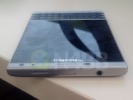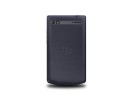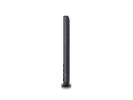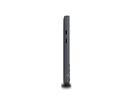Canadian handset maker BlackBerry has been on a mission to turn around its beleaguered handset business by focusing more on software, and it looks like it has taken a significant step in that direction, specifically around file security and DRM. According to reports coming out of Israel, now confirmed by BlackBerry itself, it is buying WatchDox, a startup that has developed cross-platform technology for digital rights management and for enterprises to share files securely. BlackBerry, the reports say, is paying between $100 million and $150 million for the company, and will also leverage its 100-person team in Israel to build out its R&D operations in the country.
BlackBerry says it is not disclosing the terms of the deal. The plan is to integrate WatchDox’s technology as a value-added service with BlackBerry’s Enterprise Mobility Management (EMM) portfolio. It will be available with BES12, which works on multiple platforms.
“BlackBerry is constantly expanding the potential of data security so that it enables more collaboration and sharing rather than creating limitations,” said John Chen, BlackBerry Executive Chairman and CEO, in a statement. “This acquisition represents another key step forward as we transition BlackBerry into the premier platform for secure mobile communications software and applications, supporting all devices and operating systems. Together with last year’s Secusmart acquisition, Samsung partnership, our own internal development efforts, and now the acquisition of WatchDox, we now have capabilities to secure communications end-to-end from voice, text, messaging, data and now enterprise file-sync-and share.”
The news was first reported by Israel’s GeekTime, which says the deal was signed this week for $150 million. Another local publication, Globes, followed up with a report noting that the deal could be confirmed as soon as today and see BlackBerry pay $100 million for WatchDox. We have reached out both to people at WatchDox and also BlackBerry for a direct comment and have been told we will be getting a response “soon.”
Kramer, the chairman of the company, had in the past cofounded Trusteer, another security firm acquired by IBM in 2013.
WatchDox’s growth has partly sprung out of rising awareness of security risks among enterprises and individuals. As more mobile devices are used for work and sharing documents, there has been an exponential growth of cloud-based services to store files. But that has also opened the door to data breaches. While some of us may look at the growth of organizations like WikiLeaks as a triumph of free speech on the Internet, businesses may see it differently, and that has proven to be the wind beneath WatchDox’s wings.
“WikiLeaks, as well as numerous smaller document leakage incidents, have raised awareness for the need to better secure documents as they are shared inside and outside of the organization,” Moti Rafalin, WatchDox CEO, said back in 2011 when the company announced a $9.25 million round of funding. “Legacy enterprise digital rights management and data loss prevention products are failing to address the problem, and enterprises are realizing documents need to be seamlessly protected and controlled wherever they go.”
In practice, what WatchDox allows is a business to securely share documents among employees and other authorized individuals. When those files have to leave the corporate circle of trust — for example, to be sent to someone outside the organization — the security goes with them. This means that a video clip or sensitive contract or memo cannot be downloaded and posted elsewhere. Currently, WatchDox’s DRM product does not seem to be targeted at mass distribution of files, but more to protect sensitive scripts, videos and other digital media so that it doesn’t get leaked and used elsewhere.
The acquisition will give BlackBerry a big step ahead in its own enterprise security business. WatchDox today works with a lot of different verticals, listing energy, finance, government, healthcare media and technology among them, and it says it counts “more than 150 of the Fortune 1000″ as customers. Today, BlackBerry’s security services include a collaboration with Samsung KNOX. Having its own tech would help differentiate BlackBerry’s bigger security products from those of its partners.
BlackBerry posted a profit last quarter of $28 million but a lot of that was down to drastic cost cutting, not business growth. Revenues were $660 million down from $976 million a year before. While the company is intent on pushing ahead with its hardware business — this month announcing the global rollout of the BlackBerry Leap — it’s betting hard on software as a second revenue stream that will help it serve users on other platforms apart from its own.
It’s still a very small business for the company, however. In Q4 software sales were only $67 million, even if that was up 20% on a year before.
Israel, where a lot of engineers first cut their teeth on security at the Israeli Defense Forces, is well known for its enterprise and security-focused startups. BlackBerry will not be the first business to build up their security R&D presence in the country through acquisition. Others have included PayPal (which acquired CyActive earlier this year); IBM (which acquired Trusteer in 2013); and Microsoft (which bought Aorato in 2014).
To date, BlackBerry has now made 25 acquisitions, with security-focused buys including Certicom (which counts the NSA as a customer) and Secusmart.























